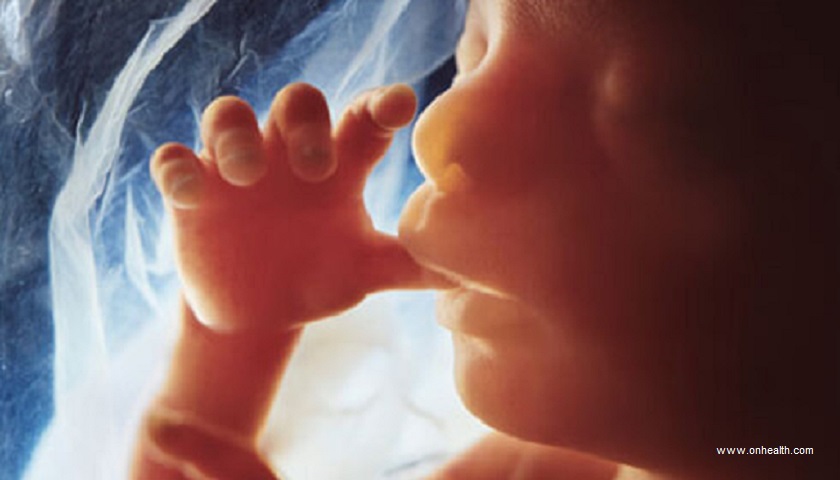A recent poll reveals that the majority of Americans consider abortion to be morally wrong and even those who identify as pro-choice want stricter limits on abortion. However, the Heartbeat Bill under consideration in the current session of the Tennessee General Assembly may never make it to the floor for a full vote if it is killed in the committee process. The same bill never made it out of the House Health Subcommittee in 2017, and was rolled to the 2018 calendar.
As The Tennessee Star reported, Marist Poll findings released prior to the world’s largest annual pro-life event, March for Life 2018, revealed that 76 percent of Americans, and even 60 percent of those who identify as pro-choice, would “limit abortion to – at most – the first three months of pregnancy.”
Tennessee’s most recent pro-life legislation, which passed in 2017 was the “Tennessee Infants Protection Act,” (HB1189 / SB 1180) sponsored by State Rep. Matthew Hill (R-Jonesborough) and Sen. Joey Hensley (R-Hohenwald), had 35 House co-sponsors. The bill, signed by the Governor on May 11, 2017, “prohibits abortion of a viable fetus except in a medical emergency and requires testing to determine viability if a woman is at least 20 weeks pregnant.
The Heartbeat Bill, also introduced in 2017, by State Rep. Micah Van Huss (R-Jonesborough) was co-sponsored by more than two dozen representatives. The Heartbeat Bill caption reads “prohibits abortions from the point a fetal heartbeat is detected; requires fetal heartbeat testing prior to an abortion; creates exceptions.”
The Heartbeat Bill was filed by Van Huss in January of last year and was assigned to the Health Subcommittee in February 2017.
During the Health Subcommittee meeting on March 1, an amendment that removed a $10,000 minimum fine for physicians was deemed to be “not timely filed,” by Chairman Bryan Terry (R-Murfreesboro) and Health Committee Chair Cameron Sexton (R-Crossville), a point that Van Huss disagreed with. In response to the suggestion by Terry and Sexton that the bill be rolled a couple of weeks, Van Huss preferred to continue to hear testimony of attendees who traveled there to speak on the bill. The sponsor also requested a roll call for any votes or actions taken by the subcommittee.
Van Huss spoke first to introduce the bill, saying that for him, “The answer to abortion is a simple one. God says in the book of Jeremiah, ‘Before I formed you in the womb I knew you, and before you were born I consecrated you.’” Van Huss continued with a compelling case,
I don’t think there’s a whole lot of convincing that can be done for folks on the other side, folks that don’t believe, because you can be categorized into two different types of people: Folks who either believe an unborn baby is a human being or folks who do not believe that it is a human being. The only difference between any of us and an unborn baby is time.
Since 1973, we as a nation have aborted over 60 million babies. Here in Tennessee, the last statistics that we have are 12,373 babies aborted a year in Tennessee. A bill that would bring a 20-week ban on abortions, according to the Centers for Disease Control statistics, would save 186 babies’ lives. A great piece of legislation if it comes forward.
The Heartbeat Bill, had it been around last year, would have saved 4,220 babies’ lives.I wasn’t born in 1973, I wasn’t in politics, but I am now and I aim to make this right and that’s why I’m presenting the Heartbeat Bill.
If the lack of a heartbeat determines when someone is dead, then shouldn’t the presence of a heartbeat determine when they’re alive? We aim to protect these babies whose heartbeats we can hear.
Let them hear your vote today.
Van Huss then introduced Lacy Buchanan, speaking in support of HB 0108, who said she is an attorney, author, wife, but her most important role is “that of a mother to two beautiful boys.”
Buchanan relayed a brief albeit emotional story of a difficult pregnancy with her oldest son and, after an initial ultrasound, having to wait “three more excruciating weeks until another ultrasound” until a heartbeat was detectable. “Not only is it accepted common knowledge in our society,” Buchanan testified, “but the scientific and medical communities both support the concept that anyone having a heartbeat is alive.”
Because “abortion stops that beating heart,” said Buchanan, “it ends that human life.” Buchanan made the connection that, legally, one person cannot end a person’s life at any other stage of a person’s life, except before birth.
Buchanan concluded, “This is a human rights issue. The right to life is a right that belongs to every single person, no matter their position relative to the womb.”
“Perhaps counterintuitively,” as he acknowledged, Brian Harris, President of Tennessee Right to Life, the state’s oldest and largest pro-life organization, and chairman of the 2014 “Yes on 1” amendment to the Tennessee constitution, testified in opposition to HB0108.
Harris explained, “The reason is simple. Under current supreme court doctrine, states may not criminalize abortion prior to viability.” While it is certainly not his position, Harris said “it is the position in which we currently find ourselves.” As such, “any abortion prior to viability, which is generally measured at 23 to 24 weeks of pregnancy, cannot be criminalized by a state legislature.”
Harris cautioned against unwittingly making unconstitutional abortion bans that would further the “primary line of argument being used here on Broadway in U.S. District Federal Court that Tennessee legislators have constructed a wall over which women seeking abortion cannot pass.”
Several points were made by Harris relative to the supreme court’s 2016 denial to review a case challenging the viability rule of Roe v. Wade with no dissent by even pro-life justices, which included Justice Antonin Scalia at the time, the risk of creating more case law that would have to be overturned before striking down Roe v. Wade and the specific complicating issue in Tennessee of the Amendment 1 challenge “on which all abortion regulations hang,” had lost its first round in federal court.
Van Huss cites that the partial-birth abortion ban failed 42 times since Roe v. Wade, but it’s the 43rd time that matters, when Nebraska’s ban was upheld by the United States Supreme Court.
Additionally, since the 2017 session, the 6th District Court of Appeals issued its ruling on January 9 this year, upholding the election results of Tennessee voters in 2014 on Amendment 1, which passed with 53 percent of the vote to amend the Tennessee Constitution, in part, to empower the legislature to enact, amend or repeal state statutes regarding abortion.
There were no votes on the Heartbeat Bill in the House Health Subcommittee on March 1, so it was subsequently put on the regular calendar for the March 8, 2017, meeting, where it was listed as the fourth item on the agenda.
Twenty-nine minutes into the meeting, Subcommittee Chairman Terry recognized Cameron Sexton who made a motion to roll the bill to the heel (end) of the day’s calendar. At 1:22 minutes into the meeting and going back to HB0108, Subcommittee Chairman Terry once again recognized Chairman (of the full committee) Sexton, who made a motion to “move this to the first calendar of 2018.”
Sexton added, expressing appreciation to the representative bringing the bill, “We just passed one bill (alluding to Matthew Hill’s HB 1189, “Tennessee Infants Protection Act,”). I think, based on the court’s make up, it’s easier to move this bill to next year as we wait. So I make a motion that we move this to the first calendar of 2018.”
The motion was seconded, and as requested by the bill sponsor, a roll call vote resulted in 5 ayes and 4 nos, in favor of rolling the bill to 2018.
At the first meeting of the House Health Subcommittee on January 17, 2018, Chairman Terry advised that according to the House sponsor, a new Senate sponsor for the corresponding SB 0244 to replace sponsor Mae Beavers, who resigned from the 17th District to run as a Republican candidate for governor, had been identified but was “not in the system.”
Subcommittee Chairman Terry reported that, according to the Clerk, without a sponsor for the companion Senate bill, the bill could not be heard. Full Committee Chairman Sexton, without referring to any specific bill, advised the members, “If any of the bills have had one consideration, and it comes back to this committee again, that’s a second consideration and if it is not passed out or no action is taken, then it goes to the Clerk’s desk. Just an FYI, if it’s heard twice in committee.”
Following a clarifying exchange between Subcommittee member Rep. Matthew Hill and Sexton, it was established that, if sent back to the Clerk’s desk, the Clerk would simply reassign the bill.
After the Heartbeat Bill, HB0181, had an amendment that was disputed as to the timeliness of its filing, was unexpectedly moved to the next year, did not have a new Senate sponsor entered into the system, and faces continued opposition by the Tennessee Right to Life organization, it appears on the agenda for the next meeting of the House Health Subcommittee, Wednesday, January 31, 2018 at 3 p.m., where it’s fate will be determined.





